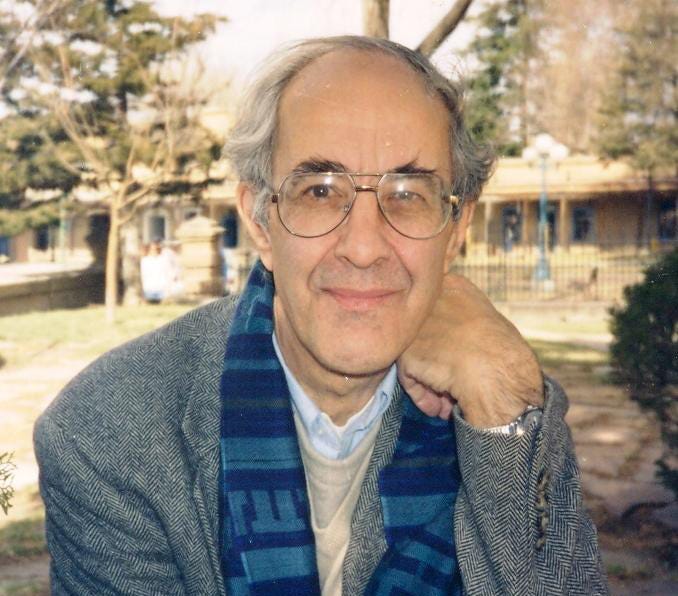Henri Nouwen: A Legacy of Spiritual Wisdom and Educational Excellence
Bruce Adema
Henri Nouwen (1932–1996) remains one of the most influential spiritual guides of the 20th century. His profound reflections on faith, human suffering, and the Christian journey continue to resonate deeply with readers worldwide. With over forty books to his name, Nouwen’s wisdom has become a cornerstone of contemporary spiritual literature, and his words are often cited by writers, preachers, and thinkers across the globe. His insights on peace, social justice, mental health, anxiety, and the transformative power of love have guided countless individuals on their spiritual journeys. Yet, alongside his rich spiritual legacy, Nouwen’s work as an educator is often overlooked but equally impactful.
A Teacher’s Heart
Nouwen’s academic career spanned several prestigious institutions, including the University of Notre Dame (1966–1968), Catholic Theological University of Utrecht (1968–1970), Yale Divinity School (1971–1981), and Harvard Divinity School (1983–1985). His reputation as a teacher was legendary, with classrooms often overflowing, as students flocked to hear him speak. But Nouwen’s approach to teaching was far from conventional. His classroom was not a space for the mere transfer of information; it was a sacred place of dialogue, reflection, and mutual growth. Even after stepping away from full-time academic positions, he continued to be in demand as a guest lecturer, sharing his wisdom at various institutions and offering guidance both inside and outside the classroom.
The Centrality of Relationships
What set Nouwen apart was his emphasis on relationships – both with God and with others. Ordained as a Roman Catholic priest and deeply committed to his theological studies, Nouwen pursued graduate-level research in psychology, which informed his understanding of human relationships. For Nouwen, a healthy life was rooted in authentic, loving connections, and he saw the relationship between teacher and student as central to the educational process.
In his teachings on spirituality, Nouwen posed the foundational question: “What is your relationship with God?” He rejected the notion of a distant, impersonal deity and instead highlighted a deeply intimate connection between Creator and created. For Nouwen, God’s love was not conditional or transactional, it was a foundational truth of the universe. “You were created because God loves you,” he taught, and every gift, talent, and opportunity is an expression of that love. This vision of God as a loving, relational presence shaped Nouwen’s understanding of both spirituality and education.
In his book Reaching Out, Nouwen eloquently captures his educational philosophy, grounded in the concept of mutual relationship. He envisioned education not as the mere transfer of knowledge but as a dynamic, life-changing exchange between teacher and student:
Teaching, therefore, asks first of all the creation of a space where students and teachers can enter into a fearless communication with each other and allow their respective life experiences to be their primary and most valuable source of growth and maturation. It asks for a mutual trust in which those who teach and those who want to learn can become present to each other, not as opponents, but as those who share in the same struggle and search for the same truth.[1]
Reframing the Classroom: Beyond the Lecture
Nouwen’s approach to education was far from the traditional lecture model, where a teacher stands at the front of the classroom, dispensing information without regard for student engagement. He believed in creating a learning environment where students and teachers could meet as equals in a shared search for truth.
Imagine, instead, a classroom where the teacher is not a distant authority but an active participant in the educational process. Nouwen often punctuated his lectures with moments of stillness or Taizé chants, inviting students into a reflective, communal space that transcended the academic grind. His students often reported feeling as if, despite being part of a large class, Nouwen was speaking directly to each of them as individuals. His genuine interest in their lives, well-being, and intellectual growth made his classrooms places of transformation.
This was not one-sided: Nouwen was not only a teacher; he was a learner as well. He understood that the teacher-student relationship is reciprocal. He believed that both parties had valuable lessons to teach each other, creating a symbiotic dynamic where both could grow in wisdom and understanding.
Trust: The Foundation of Educational Relationships
For Nouwen, the key to a fruitful educational experience was trust. He recognized that mutual trust between teacher and student was essential for true learning to take place. A teacher must demonstrate a genuine concern for the student’s well-being and growth, while students must trust that their teachers are invested in their success and development.
Trust, in Nouwen’s view, creates an environment in which both teacher and student can be vulnerable, ask questions, and explore ideas freely. This creates an atmosphere where learning becomes a shared journey, not a transaction. It is within this trusting relationship that both parties can experience personal transformation – students grow intellectually, while teachers find joy in seeing their students evolve.
The Pursuit of Truth
Nouwen’s educational philosophy was anchored in the belief that education’s highest goal is the pursuit of truth. But this truth is not limited to the world of facts and figures; it is also the deeper truth of who we are as human beings and the spiritual truths that bind us together. Nouwen believed that education should help students uncover three great lies that many people internalize: that we are what we do, that we are what we have, and that we are what others say about us.
Through education, Nouwen envisioned a process by which students could unlearn these lies and discover their inherent value and dignity. He believed that all knowledge, whether in mathematics, philosophy, or ethics, must be situated in the larger truth of human worth and divine love. In a world increasingly marred by misinformation and superficiality, Nouwen’s vision of education as a pathway to deeper truth is more relevant than ever.
As John F. Kennedy once noted, education is about “the advancement of knowledge and the dissemination of truth.”[2] For Nouwen, this truth was not just about the academic subjects but about the profound realities of human existence and divine love. His educational philosophy provides a powerful framework for fostering both intellectual and spiritual development.
A Lasting Legacy
Henri Nouwen’s contributions to spirituality and education are inseparable. His vision of education, rooted in relationship, trust, and truth, continues to influence educators, theologians, and spiritual leaders. By fostering an environment where love, respect, and mutual growth are central, Nouwen created a model of education that transcended the classroom and extended into the lives of his students and readers.
His legacy is one of profound wisdom, compassion, and a deep commitment to human flourishing. Henri Nouwen remains a guiding light for those seeking to grow in faith, understanding, and relationship – with God, with others, and with themselves.
Bruce Adema is Executive Director of the Henri Nouwen Society (HNS). He lives in Canada, but HNS is registered in both Canada and the USA, and has global reach. Previously he served on the faculty of Koinonia Theological Seminary in Davao City, Philippines.
[1] Henri Nouwen, Reaching Out: The Three Movements of the Spiritual Life (New York: Doubleday, 1975), 60.
[2] https://www.jfklibrary.org/archives/other-resources/john-f-kennedy-speeches/harvard-university-19560614






